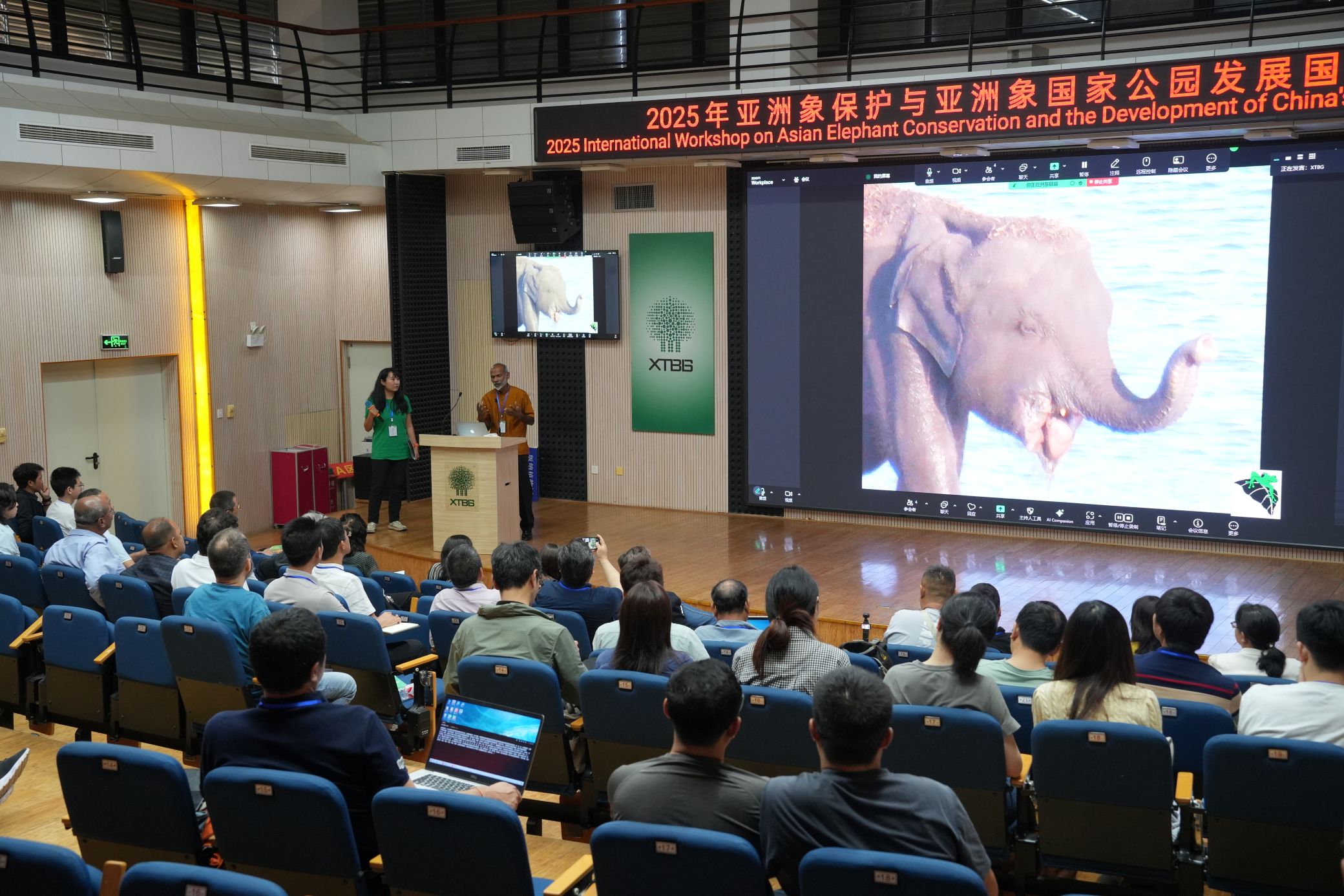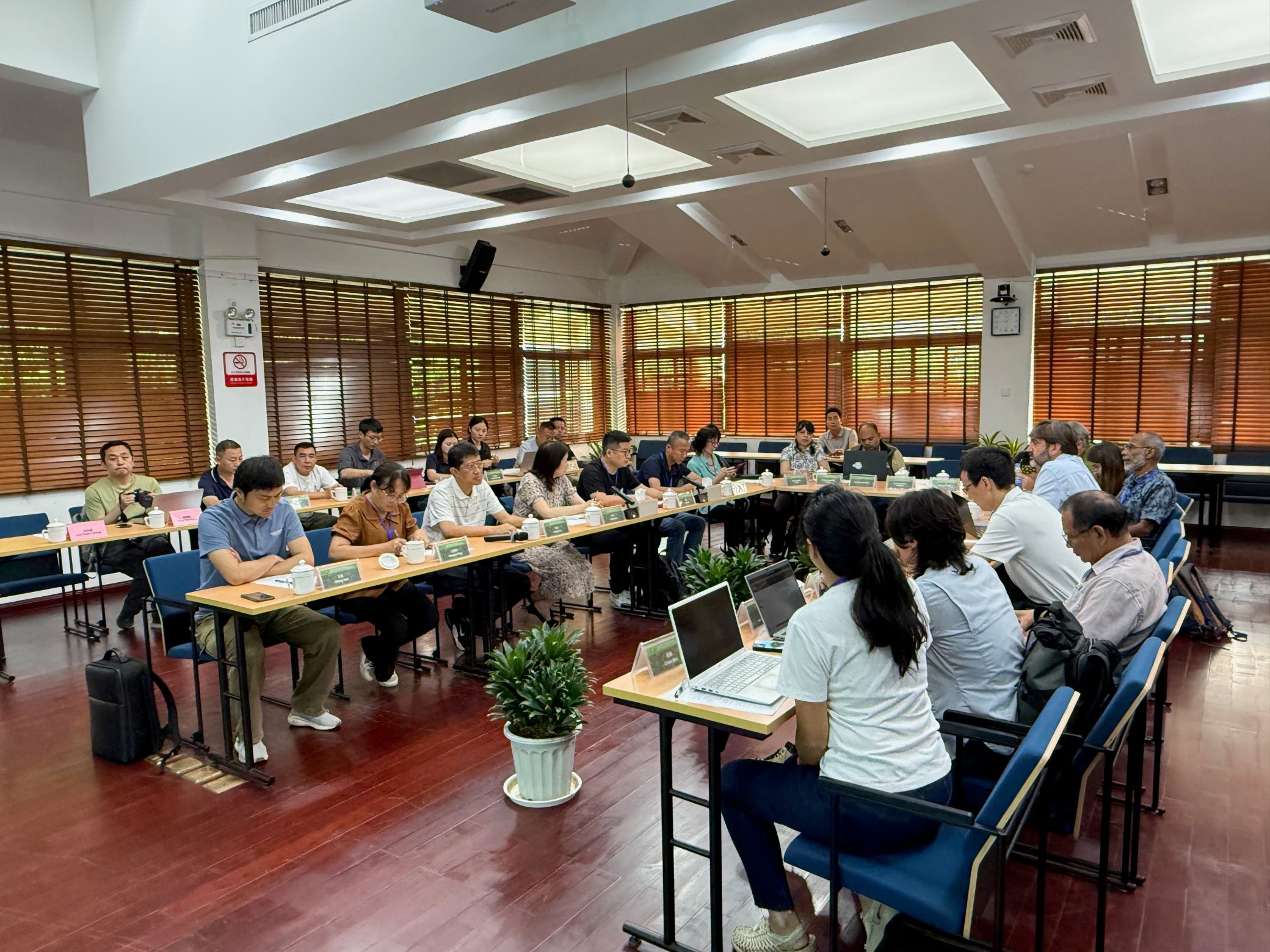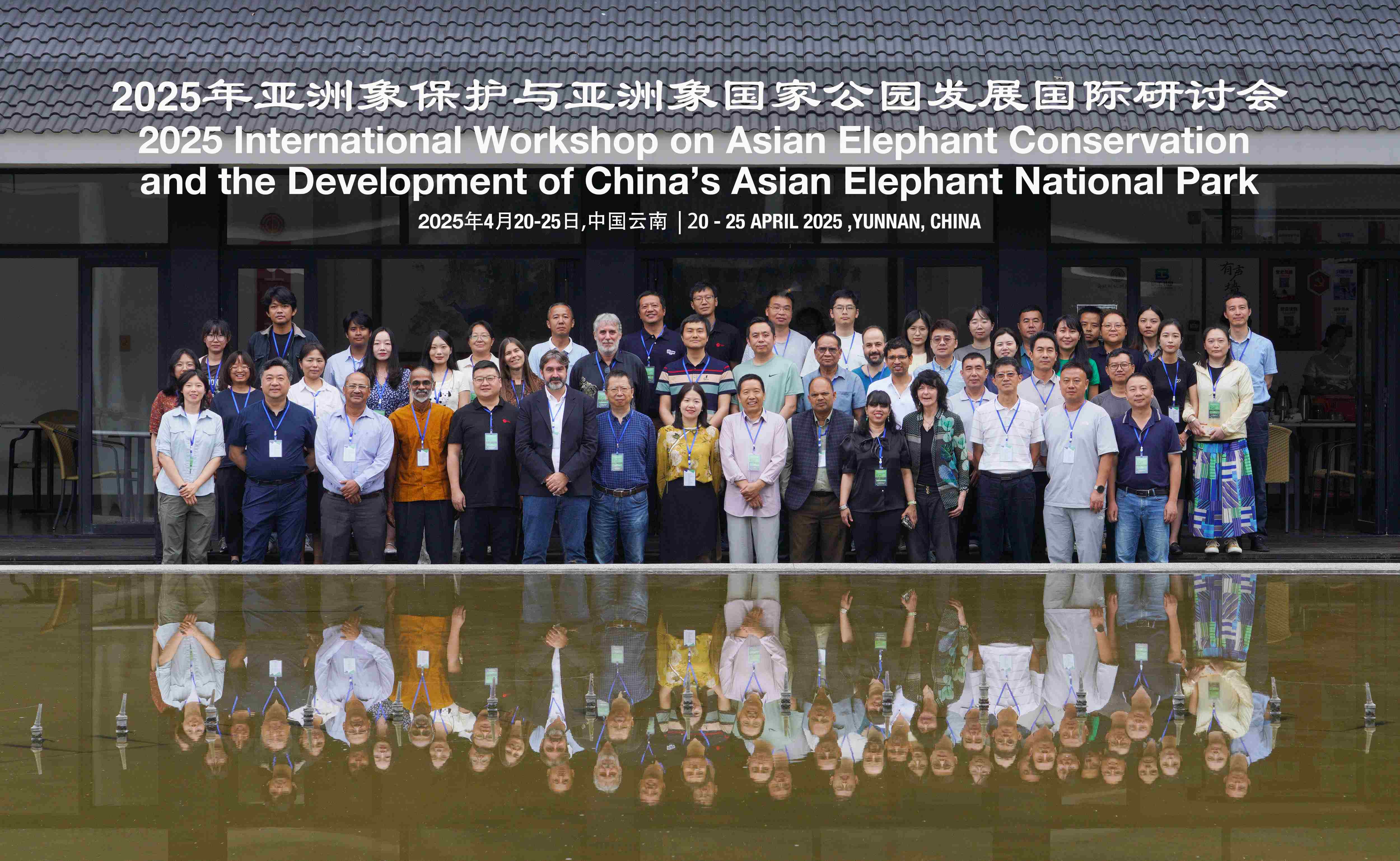The 2025 International Workshop on Asian Elephant Conservation and the Development of China’s Asian Elephant National Park was held in Xishuangbanna Tropical Botanical Garden (XTBG) from April 20-25, bringing together experts to discuss pressing challenges in protecting Asian elephants.
The workshop aimed to foster cross-border collaboration, share cutting-edge research, and explore innovative strategies for habitat management and human-elephant conflict mitigation.
Prof. Ahimsa Campos-Arceiz of XTBG chaired the opening ceremony.
In his welcome speech, Prof. Quan Ruichang, deputy director of XTBG, emphasized the critical role of establishing the Asian Elephant National Park as a “strategic national priority” to safeguard ecological security in Southwest China. “This workshop serves as a vital platform for inter-disciplinary and international exchange,” he noted, urging participants to contribute actionable insights for flagship species conservation and sustainable development across the region.
Over 60 experts from Asian elephant range countries—including China, Sri Lanka, India, Nepal, Malaysia, and Laos—presented breakthroughs in key areas, such as population monitoring and early warning system, habitat restoration, captive elephant welfare, ecotourism and cultural integration, etc.
10 keynote speeches highlighted collaborative projects, such as Sri Lanka’s community-based monitoring networks and India’s AI-driven conflict prediction tools.
Participants spanning policymakers, protected area managers, researchers, and NGOs debated strategies to strengthen regional cooperation.
Afterwards, the participants toured elephant habitats in Pu’er and Xishuangbanna to observe China’s real-time monitoring systems, habitat restoration projects, and community outreach initiatives.





